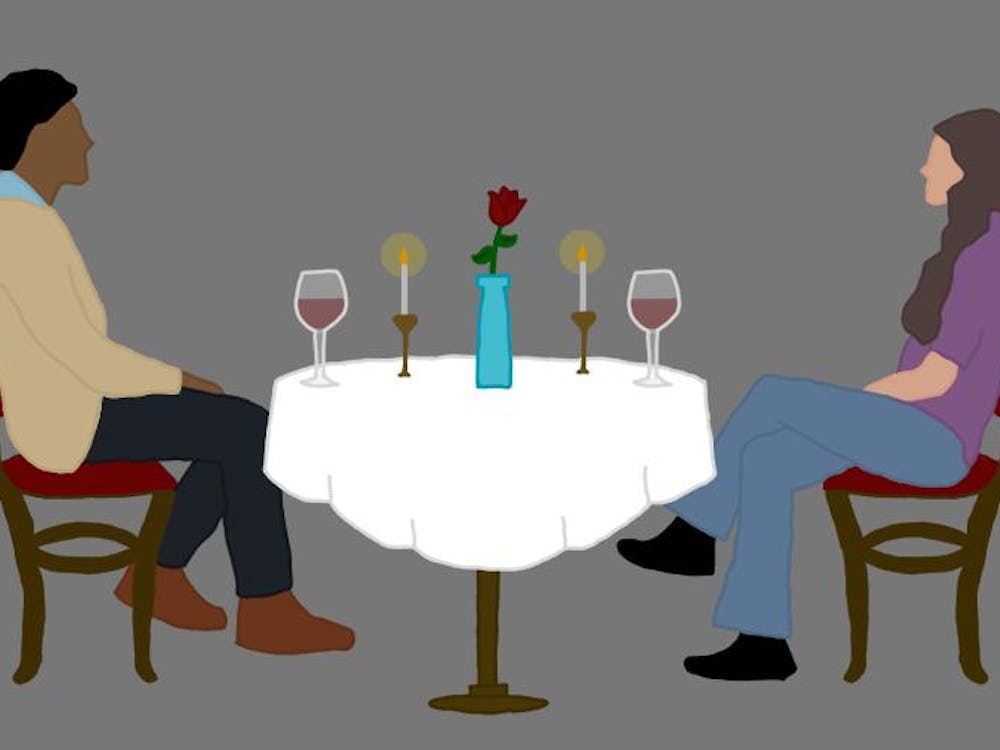University students hailing from differ-ent locations around the world settle in Charlottesville during the school year while residents of the city deal with an influx of new students each year, presenting a contrast between students and so-called "townies."
The mix of students and Charlottesville residents has resulted in some misconceptions about each group.
"I think U.Va. students like townies, but they don't think they should come to U.Va. parties and events," first-year Nursing student Laura Godfrey said.
She said local residents are separate from the University and should not take over events such as cookouts or concerts sponsored by the University for its student body.
Godfrey also said University students might have a negative perception of the non-students in Charlottesville based on isolated events.
"I know someone who was beaten up by a townie," Godfrey said. "I think that can give them a bad rap, I'm sure it's not everyone."
Similarly, Charlottesville native Brandon Luckett, 22, said he thought students do not trust "townies" after some had come and disrupted University parties.
"It kind of gives them the thought that townies are bad and they come to the community to mess things up," Luckett said.
To try to dispel this opinion, Luckett said he and his friends try to come and help out with certain events held by University groups including fashion shows and concerts.
Another misconception some student have about local residents concerns their reasons for not attending school.
Charlottesville resident Will Morgan, 19, said he often comes into contact with University students who automatically assume that he attends the University as well.
"Being asked what year I am whenever I meet someone and having to tell them I don't go to school can be kind of tough and wear on someone after a while," Morgan said.
Morgan chose to postpone his college education after graduating to raise money to support his mission for the Church of Jesus Christ of Latter-Day Saints.
This mission is not paid for by the church, and it costs approximately $375 per month for the two-year mission, amounting to about $9,000 overall, Morgan said.
"I've been working and saving for almost two years trying to put money away, and that doesn't leave a whole lot of room for college," Morgan said, adding that he also currently pays for most of his own bills.
While University students may hold false impressions of local residents, "townies" may also hold their own beliefs about the University community.
There is a "general stereotype of U.Va. that it was still more of a not-quite southern finishing school, [because] it had that sort of air to it," Charlottesville native and third-year College student Don Norum said.
Similarly, some Charlottesville residents said the fashion trends of University students are a clear, separating marker.
"I must say I'm not a fan of the double-popped-collar," Morgan said. "One popped-collar is silly enough, two is excessive."
Morgan also said University baseball hats on shaggy-haired heads, and groups of girls all wearing the same outfits usually indicate they are University students.
Although some students and local residents said they did not perceive any specific antagonism between the two groups, they also said if any unfounded animosity exists, it should be discussed and resolved.
"I think we need to be more aware of it," Godfrey said. "We're just visitors for four years, but they live here and they've lived here their whole lives."
Additionally, some Charlottesville residents said there are many benefits to growing up and living in a college town.
"The diversity of people is a good thing to have around," Morgan said. "There's always someone around to talk to who's from a different area. U.Va. brings a lot of life to the area as well, having a living, breathing school is really beneficial."
Likewise, various student groups at the University interact with and include community members.
Luckett said he has participated in the Black Voices choir as well as ReMix.
"At first I thought of myself as an outcast, but that's like my new family," Luckett said. "I really enjoy being around them. I'm learning to become more open and I speak my mind a lot more than I used to a couple of years ago, just from being around them."
Nevertheless, some Charlottesville residents said the traffic due to the University students is somewhat of a nuisance during the school year.
"Those two or three fateful days in August when people are moving in is when you feel the lanes closing in on you," Morgan said. Later, he added, "Just because you're in a crosswalk doesn't mean a car won't kill you if it hits you," referring to carelessness with which students may walk into streets.
Still, Morgan said he would rather have a Charlottesville with the University than without it. He said he does not think there should be many problems between the two groups.
"We're here, we're not polar opposites, we're not competing for the hold of the city," Morgan said.
In any case, University students and local residents will continue to coexist in Charlottesville.
"People are people, humans are humans, everybody still lives in this one world," Luckett said.






